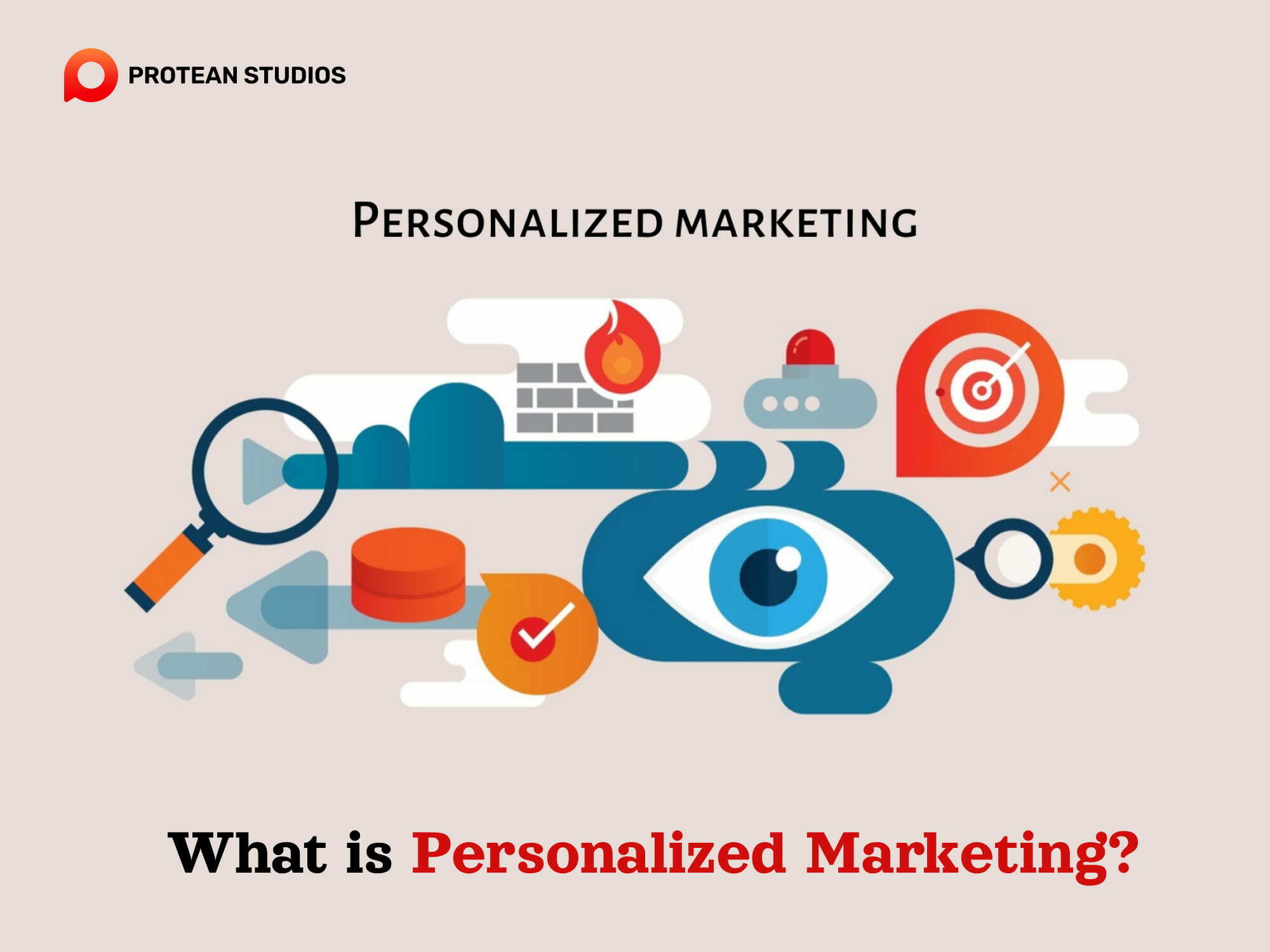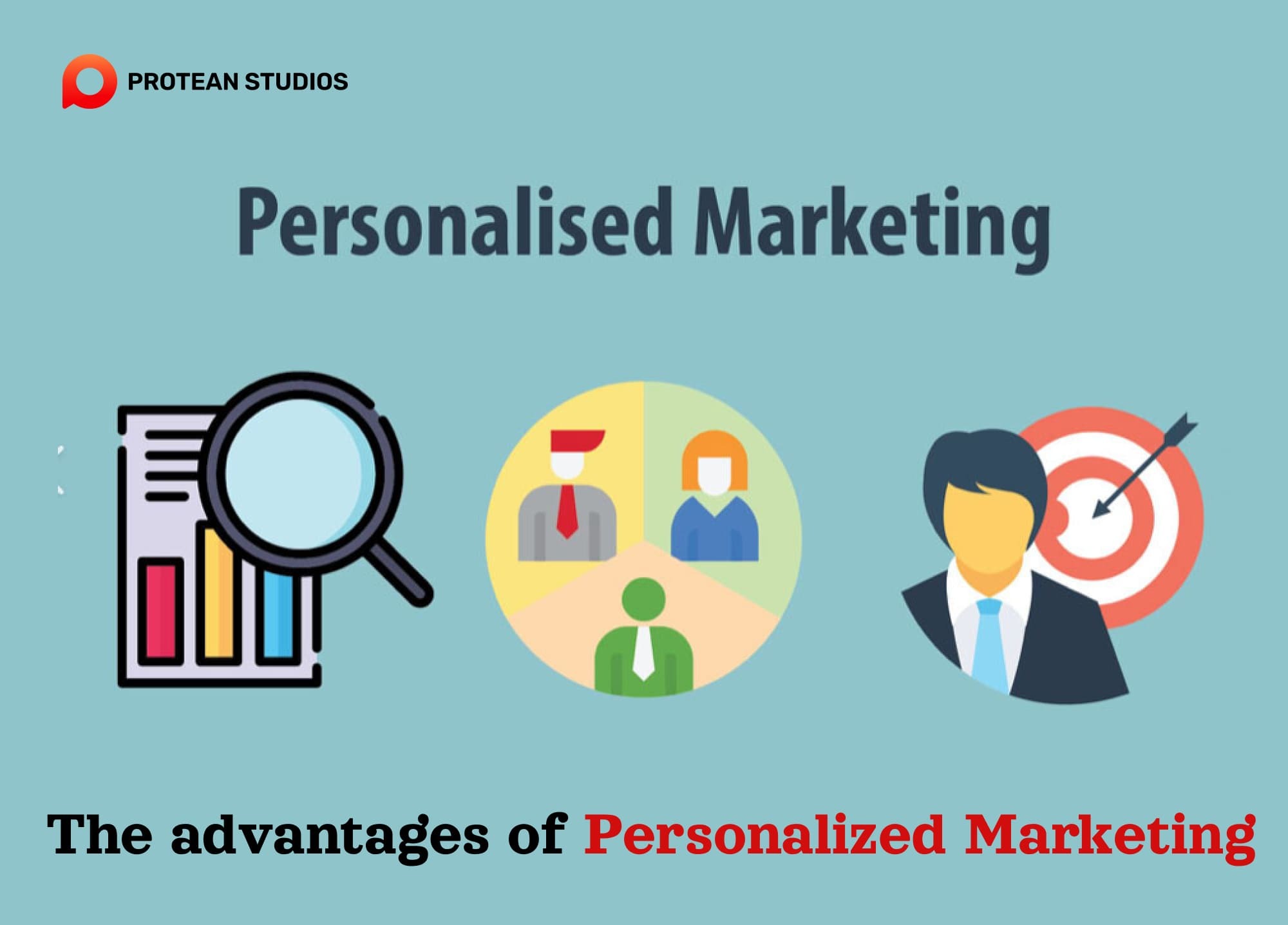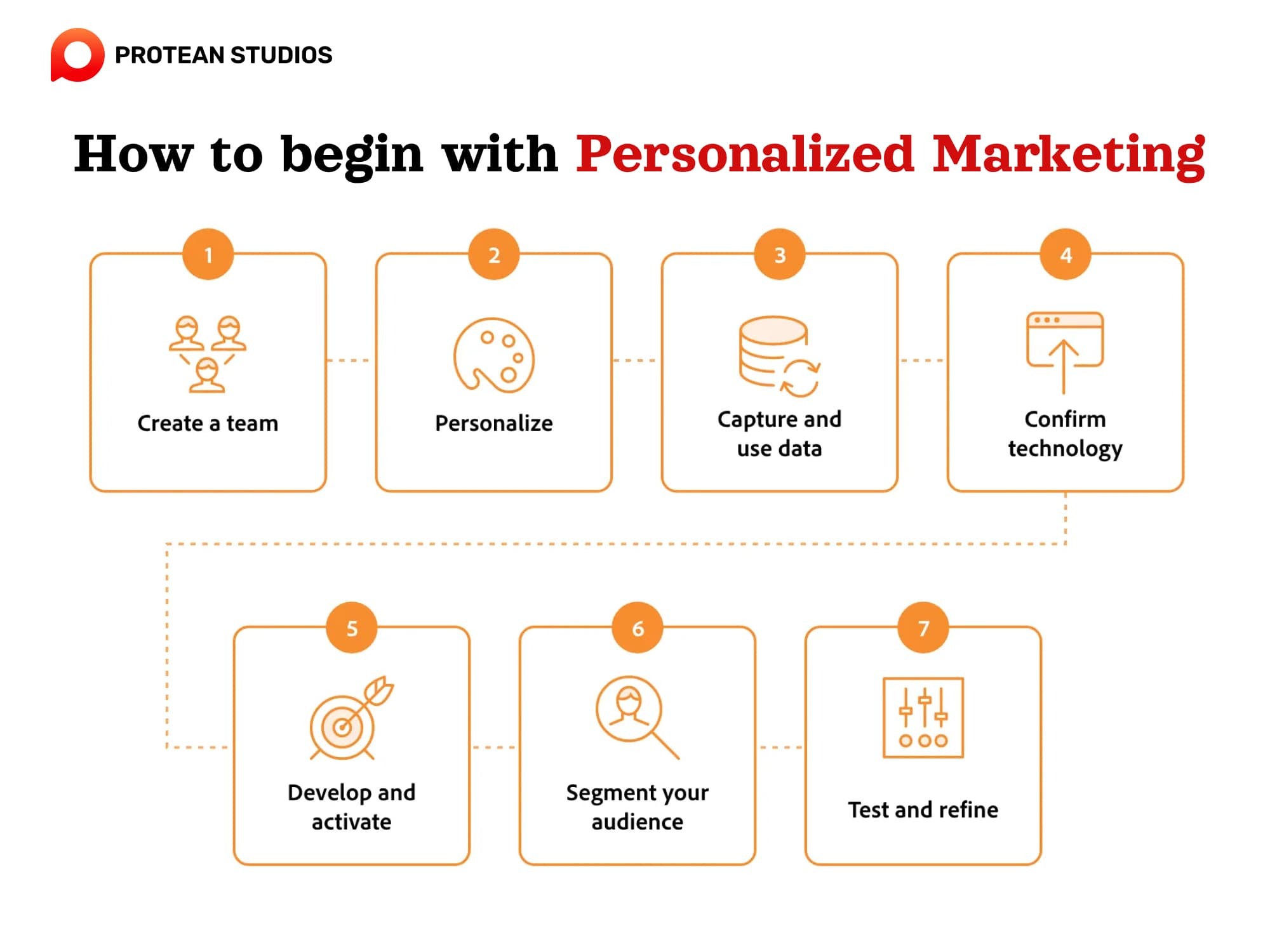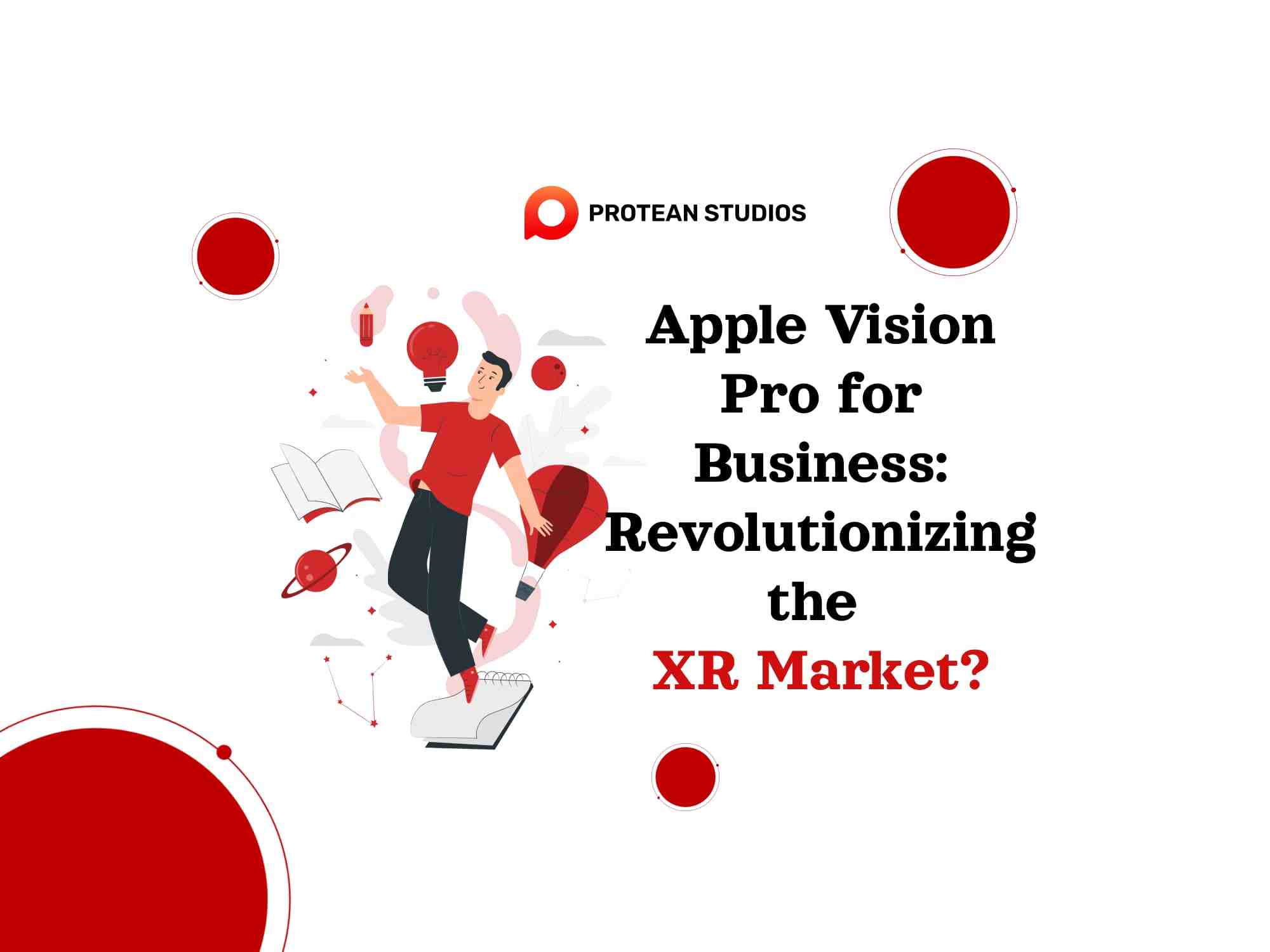In today's fast-paced business world, companies are finding new ways to connect with customers, and one standout method is personalized marketing. Unlike old-style mass advertising, this marketing focuses on treating each customer as an individual. It's all about adjusting messages and promotions to match people's likes and behaviors.
In this exploration, we'll take a closer look at the key aspects of personalized marketing. Especially, see how it's changing the way businesses connect with their customers and start with a new strategy.
About personalized marketing
Personalized marketing is a strategy where businesses customize their ads and promotions based on each person's preferences and behaviors. It uses data and technology to create targeted campaigns for individual customers. The aim is to offer a more customized and captivating experience. This approach helps businesses connect better with customers and increases the chances of making sales.

In general, marketers use this strategy to create a more relevant and engaging experience for the customer. As a result, it leads to higher conversion rates, loyalty, and satisfaction for most customers. Marketers often use it through various channels, such as email, social media, the web, mobile, and offline.
To achieve personalized marketing, they need to collect and analyze data about their customers. For example, demographics, sales history, browsing behavior, feedback, and interests. Then, they need to use this data to segment their customers into different groups and create personalized content and offers for each group.
Why is personalized marketing good for brands?
Nowadays, more and more businesses use personalized marketing because it brings many benefits to brands, such as:
Increasing customer loyalty and retention because the brand cares about their needs and interests.
Boosting conversion rates and sales by offering relevant products and services that match the customer's needs and wants.
Enhancing customer satisfaction and trust by providing consistent and personalized experiences across different channels and touchpoints.
Reducing marketing costs and waste by targeting the most valuable and responsive customers with the most effective messages.
The advantages of personalized marketing
Marketing personalization has many advantages and has a win-win relationship for both businesses and customers. It brings a more efficient, effective, and enjoyable marketing landscape, as follows:

For Businesses
Increased conversion rates: personalized messages and offers resonate better with individual customers. It leads them to pay more attention, click through, and convert at higher rates.
Enhanced customer experience: Personalization makes customers feel valued and understood, fostering loyalty and positive brand perception. They receive relevant content and offers, leading to a more enjoyable and engaging experience.
Improved marketing efficiency: By targeting the right audience with the right message, businesses waste less money on generic advertising. This promotes a higher return on investment for marketing campaigns and allows for smarter budget allocation.
Deeper customer insights: Personalized marketing campaigns provide valuable data on how different customer segments respond to various messages and offers. This data helps refine marketing strategies and develop targeted campaigns. And then, create products and services that resonate with the customer base.
To know more about data and data management tools, you can read through the blog: Understanding Data Management Platforms (DMPs)
For Customers
Greater relevance and value: Customers receive content, offers, and recommendations tailored to their specific needs and preferences. These will make them feel valued and save time from sifting through irrelevant information.
More enjoyable and engaging experiences: Personalized interactions create a more positive and engaging experience, fostering brand loyalty and awareness.
Improved decision-making: Relevant product recommendations and targeted offers help customers make informed choices, leading to higher sales satisfaction.
Stronger relationships with brands: Personalization fosters a sense of connection and understanding between customers and brands.
How to begin with personalized marketing
Personalized marketing is a strategy that tailors your content and offers to the needs and preferences of your customers. This strategy can boost your conversions, foster loyalty, and enhance revenue. But how do you get started with personalized marketing?

1. Form a team
You need a cross-functional team that can collaborate on creating and executing your personalized marketing plan. This team should include members from marketing, sales, IT, data, and customer service.
2. Select the areas for personalization
Many online marketing channels and stages within the marketing funnel promote effective, personalized marketing. Yet, email marketing and websites are the most impactful channels for implementing this marketing strategy.
3. Outline the data capture and use strategy
In this step, you need to determine what data you collect from your customers, how you will collect it, and how you will use it to create personalized experiences. For example, you can use cookies, forms, surveys, CRM data, etc.
4. Verify the technology stack
Marketers will prepare the right tools and platforms to support your personalized marketing efforts. For example, you can use a content management system (CMS), email marketing software, a personalization engine, a data analytics tool, etc.
5. Build and implement
To build a suitable strategy, you have to create the content and offers that you will use to personalize your customer interactions. You also need to set up the rules and triggers that will determine when and how to deliver them.
6. Use data to group your customers
In this phrase, marketers will divide their customers into groups based on their characteristics, behaviors, and preferences. This will help you target more relevant and engaging content and offers.
7. Conduct tests and enhance as needed
In the final step, you need to measure the performance of your personalized marketing campaigns and optimize them based on the results. We can use A/B testing, multivariate testing, or other methods to test different variables and find the best combinations.
Read more: What Is Marketing Automation?
Summarize personalized marketing
In general, personalized marketing is about customizing promotions based on individual preferences and data. It enhances engagement by creating targeted and relevant experiences, often implemented through channels like email or websites.




